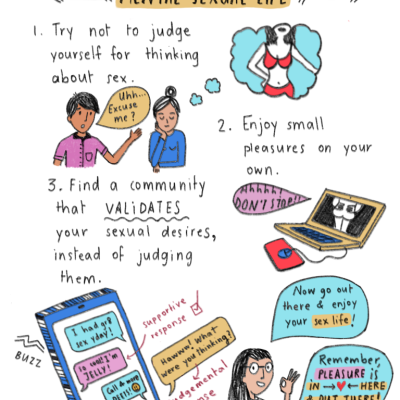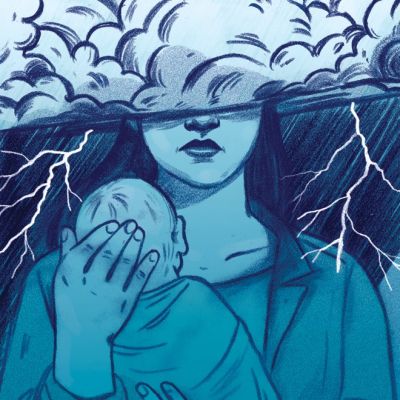wellbeing
I am not pleased about everything that happened, but I accept that these are my experiences. I accept that I have grown through them, built more invisible muscle. Most of all I accept that it is with the help and support of a diverse array of souls, relationships, and ordinary chuff-chuffing that I can do and be many of the things my spirit is; my life is more than the parts that panicked, and I accept and look after those bits too.
As if the challenges of parents bringing up adolescents in a world dominated by social media is not enough, the addition of teaching these parents to accept different sexual orientations and the fluidity of gender in a gender-binary world can be daunting.
Is seeking wellbeing selfish and individualistic? Does it imply placing one’s own interests above those of others? In the context of sexuality, does it mean prioritising one’s pursuit and attainment of pleasure above all else?
Sashwati Banerjee is the Managing Director of Sesame Workshop in India. Ms. Banerjee leads the organisation in its mission to…
How, then, can one shed such harmful modes of thinking around sex, sexuality, and sexual purity, and work towards not only a greater self-awareness, but positive sexual mental health?
Should we train it to think well, all these minds would see reason in similar things and they would come up with the same absolute reality – a universal Truth. That Truth would be a reflection of the Natural order for all humankind. That Truth alone would be beautiful.
In the mid-month issue on Wellbeing and Sexuality, we bring you an article by Jai Ranjan Ram sharing what he learned in his psychiatric practice from a self-identified pansexual homoflexible adolescent.
घरेलु हिंसा विषय पर काम कर रही एक नारीवादी संस्था के साथ सामाजिक कार्यकर्ता के रूप में अपने करियर के…
पिछले साल के जुलाई महीने में मुझे बताया गया कि मुझे फ़ाइब्रोमायल्जिआ नाम की बीमारी है। आप में से जिनको…
As depicted in various forms of media, society has unrealistic expectations of how mothers and motherhood should be – enamoured by their babies, to feel only happiness at being a mother, being completely focused on their babies, living in the ‘glow of motherhood’. Being depressed is simply not seen as an acceptable response.
India has a severe shortage of mental health professionals and the experiences of counsellors like Kapoor raise the question of whether there is a wave of therapist burnout in the country. Unfortunately, there has been no research to indicate the extent of the problem in India.
Is seeking wellbeing selfish and individualistic? Does it imply placing one’s own interests above those of others? In the context of sexuality, does it mean prioritising one’s pursuit and attainment of pleasure above all else?
The video “How Emotionally Healthy Are You?” by The School Of Life leads us through a series of questions to look at various aspects like self-love, trust, communication and letting go
Working as a sexuality rights activist in a repressive environment can take a huge toll on people’s wellbeing. It is therefore important that we as social workers, activists, advocates and everyone else involved in this work take care, take care of ourselves and each other, be supportive, give that extra push to someone who needs it, and allow ourselves to make mistakes.
This is where ‘aftercare’ comes in – a practice of holistic caring and attention-giving to one’s partner post-sex.














